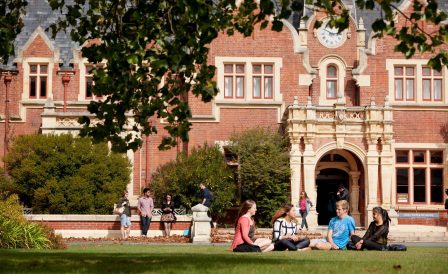At the moment, lawyers are not on the list of sought-after specialities in New Zealand, which means that it will be extremely unlikely to find work in this area without a local education and work visa. Education pathway has its own nuances. The choice of the program depends on which role do you want to take.
Working as a Lawyer and Representing Clients in Court
To work as a lawyer in New Zealand (Lawyer, Barrister, or Solicitor of the High Court) and represent clients in court, you must hold a local law degree (Bachelor of Laws, LLB) and obtain a practising certificate. The key steps are:
- Complete a Bachelor of Laws (LLB) degree — a 3 to 4-year program approved by the New Zealand Council of Legal Education (NZCLE);
- Complete a Professional Legal Studies Course (PLSC) or attend the College of Law;
- Obtain a Certificate of Completion from the NZCLE;
- Obtain a Certificate of Character from the New Zealand Law Society;
- Be admitted to the roll of Barristers and Solicitors of the High Court of New Zealand;
- Hold a current practising certificate issued by the Law Society.
Alternative Study Options
If you are not ready to start your legal education from scratch and pursue full licensing, you may consider enrolling in a Master of Laws (LLM) program, which takes 1 to 2 years to complete. However, please note that an LLM does not qualify you to represent clients in court or work as a licensed lawyer, barrister, or solicitor.
Graduates with an LLM can work in roles such as Legal Researcher, Paralegal, or In-house Legal Adviser, but not as a court-licensed legal professional.
Admission to an LLM program typically requires a prior law degree, relevant work experience, and a minimum IELTS Academic score of 7.0 overall, with no less than 7.0 in Writing.
LLM programs are offered by a limited number of universities and can be quite expensive. However, they provide not only knowledge of New Zealand law and valuable legal skills but also a post-study work visa. This combination of local education and work rights significantly improves your chances of finding employment.
Moreover, you can bring your family or partner with you. Your partner may be eligible for an open work visa during your study period, and school-aged children can attend public schools free of charge. This type of study also contributes additional points if you plan to apply for residency through the Skilled Migrant Category.
For more information about job search strategies read in our article.
Level 9 programs and cost
- Victoria University, Master of Laws
around NZ$ 40 400 - University of Auckland, Master of Laws
around NZ$ 44 500 – 55 210 - University of Auckland, Master of Legal Studies
around NZ$ 44 500 – 55 210 - University of Canterbury, Master of Laws
NZ$ 40 600 - University of Canterbury, Master of Laws (International Law and Politics)
NZ$ 40 600 - Waikato University, Master of Laws
NZ$ 39 355 - Otago University, Master of Laws
NZ$ 42 095
You can also consider training options for business specialities of various destinations. Studies on similar programs will include some information on legislation, but in the future, you will need to look for managerial positions. What managers do, we wrote earlier in this article.
Contact us and we will be glad to tell you the options and answer all your questions.



